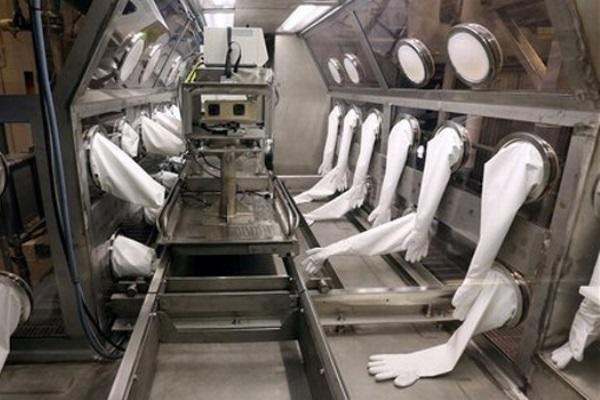The Army dodged a catastrophe in the anthrax scandal and risked a recurrence without a major overhaul of how the military handles deadly agents and conducts research, the former commander of the Army's top biothreat research organization said Wednesday.
The investigation of the mistaken shipment from the Army's Dugway Proving Ground of live anthrax to contractors, sub-contractors and private labs in 50 states and nine foreign countries concluded last month that the public faced little risk despite the slipshod methods that were used.
However, "we must assume that without continued focus on smart improvements in biosecurity and biosafety this will happen again somewhere in the nation's laboratory network with a worse outcome," said Dr. Gerald W. Parker, a retired Army colonel and former commander of the U.S. Army Medical Research Institute of Infectious Diseases (USAMRIID).
Military researchers were considered the "go-to scientists" in the field of biosecurity but the anthrax fiasco showed that they were inept at telling whether anthrax spores were live or dead, Parker said. "As it turns out, there is an incomplete scientific understanding of the inactivation process" for killing anthrax spores, Parker said.
Parker was testifying as an ex-officio member of the Blue Ribbon Study Panel On Biodefense at a hearing of the House Subcommittee on Emerging Threats and Capabilities to solicit outside views on biodefense and the military's role.
Another ex-officio member of the Study Panel is I. Lewis "Scooter" Libby, who was chief of staff to former Vice President Dick Cheney and was convicted of obstruction of justice and other charges in a case involving the naming of CIA agent Valerie Plame.
A spokeswoman for the Study Panel said that it was a project of the Hudson Institute and was funded by corporations and foundations. The Hudson Institute lists Libby as a senior vice president.
The Study Panel released a lengthy report last October warning of the nation's growing vulnerability to bioterror attack and calling for the Vice President to take charge of centralized planning for biodefense.
Kenneth L. Wainstein, a member of the Study Panel, testified at the hearing that terror groups including the Islamic State of Iraq and Syria were making preparations for a biological attack on the U.S.
"Specific intelligence indicates that they're actively trying to recruit scientific experts, they're seeking control of labs, they're making concrete plans for the use of the weapons," said Wainstein, a former assistant Attorney General and Homeland Security Advisor to former President George W. Bush.
"We believe it's not a matter of if, but rather when and how soon, a biological attack will be launched on our nation, our people or our allies," Wainstein said.
When asked whether the U.S. was shoring up biodefenses against attack, Wainstein said "Sadly, our panel found that the answer to that question is 'No.'"
--Richard Sisk can be reached at Richard.Sisk@Military.com.




























